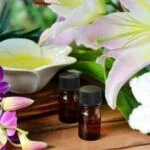Aromatherapy birth is a natural and holistic approach to childbirth that has gained popularity among expectant mothers seeking alternative methods for managing pain and promoting relaxation during labor. This article aims to delve into the world of aromatherapy and its potential benefits for women undergoing childbirth. From understanding how scent can impact mood and pain perception to identifying the best essential oils for labor, this comprehensive guide will provide valuable insights for those considering incorporating aromatherapy into their birthing experience.
The use of essential oils in aromatherapy has been found to have a positive impact on individuals’ emotional well-being and physical comfort. By harnessing the power of plant-derived scents, aromatherapy can serve as a complementary practice to conventional pain management techniques, offering women a natural and non-invasive method for coping with the challenges of labor.
Throughout this article, we will explore different aromatherapy techniques, safety precautions, success stories from real-life experiences, and tips for integrating aromatherapy into a birth plan.
Whether you are a first-time mother or have previous experience with childbirth, embracing aromatherapy as part of your birthing journey can pave the way for a calm and empowering experience. By gaining an understanding of how essential oils can be used effectively during labor, expectant mothers can make informed decisions about integrating aromatherapy into their birth plans. Join us as we embark on this enlightening exploration of aromatherapy birth and discover its potential to enhance the childbirth experience.
Understanding Aromatherapy
Aromatherapy has been gaining attention as a natural and holistic approach to labor and childbirth. The use of essential oils during childbirth, also known as “aromatherapy birth,” has shown to have positive effects on mood and pain perception for many women. Understanding how scent can impact mood and pain perception during childbirth is essential for prospective mothers who are exploring alternative methods for a more calming and empowering birth experience.
The Science Behind Aromatherapy
Research has shown that the sense of smell is closely linked to the limbic system in the brain, which is responsible for emotions, memory, and arousal. When certain scents are inhaled, they can trigger the release of neurotransmitters such as serotonin, dopamine, and endorphins, which can help reduce stress and promote relaxation. This makes aromatherapy an appealing option for women seeking natural ways to manage the discomfort associated with labor.
Impact on Mood
The use of essential oils in aromatherapy can have a profound impact on mood during childbirth. Scents like lavender and chamomile are known for their calming properties, while citrus oils such as lemon or orange can provide an energizing effect. By creating a soothing environment with the right scents, women in labor may experience a reduction in anxiety and an overall improvement in mood.
Pain Perception
In addition to affecting mood, aromatherapy has also been found to positively influence pain perception during childbirth. Certain essential oils like peppermint or eucalyptus have analgesic properties that can help alleviate discomfort. When applied through massage or inhalation methods, these oils may contribute to reducing the sensation of pain during labor. Women who have used aromatherapy during childbirth have reported feeling more relaxed and better able to cope with the intensity of contractions.
The Best Essential Oils for Aromatherapy Birth
Popular Essential Oils for Aromatherapy Birth
When it comes to using essential oils for aromatherapy birth, it’s important to choose the right ones that are safe and effective for labor. Some of the most popular essential oils for this purpose include lavender, peppermint, frankincense, and clary sage.
Lavender is known for its calming and relaxing properties, while peppermint can help with nausea and provide a refreshing scent during labor. Frankincense is often used to promote feelings of relaxation and peace, while clary sage has been said to help with pain relief during childbirth.
Choosing the Right Oils for Your Needs
The best essential oils for aromatherapy birth will depend on your personal preferences and needs during labor. Some women may find that certain scents help them relax and stay focused, while others may prefer oils that provide a burst of energy or aid in pain management. It’s important to consider how each oil makes you feel and to choose ones that align with your specific birthing goals.
Consulting With a Professional
Before incorporating essential oils into your birthing plan, it’s crucial to consult with a qualified aromatherapist or healthcare provider who has experience in aromatherapy birth. They can help guide you in choosing the best essential oils for your individual needs and ensure that they are being used safely throughout the labor process. Additionally, they can provide recommendations on proper dilution ratios and usage methods to maximize the benefits of aromatherapy during childbirth.
Aromatherapy Techniques for Labor
Aromatherapy during labor can be a great way to enhance the birthing process, providing relaxation, pain relief, and emotional support. There are various techniques for incorporating aromatherapy into labor, including diffusing essential oils in the delivery room, using them for massage during contractions, and inhaling their scent for emotional support. These methods can maximize the benefits of aromatherapy and contribute to a more positive birth experience.
One of the most popular aromatherapy techniques for labor is diffusing essential oils in the delivery room. This involves using a diffuser to disperse the aroma of essential oils throughout the room, creating a calming and soothing atmosphere. Oils such as lavender, clary sage, and chamomile are commonly used for diffusion during labor due to their relaxing and pain-relieving properties. Diffusing essential oils not only benefits the laboring mother but also creates a pleasant environment for her birth team.
Another effective method for utilizing aromatherapy during labor is through massage with essential oils. The gentle application of diluted essential oils on the skin can provide both physical and emotional relief during contractions. Oils like peppermint, frankincense, and rose can be used for massage to alleviate muscle tension, reduce anxiety, and promote relaxation. Aromatherapy massage can be especially beneficial when combined with other comfort measures such as breathing techniques or warm compresses.
Inhalation methods are also widely used by women during childbirth to harness the therapeutic effects of essential oils. Simply inhaling the aroma of certain oils can help manage pain perception, reduce stress levels, and create a sense of calmness.
Women may choose to inhale their preferred essential oil directly from the bottle or apply a few drops on a tissue or cotton ball to hold near their nose. Creating an inhalation blend tailored to personal preferences can enhance its effectiveness in promoting relaxation and comfort during labor.
| Aromatherapy Technique | Essential Oils |
|---|---|
| Diffusing | Lavender, Clary Sage, Chamomile |
| Massage | Peppermint, Frankincense, Rose |
| Inhalation | Bergamot, Ylang Ylang, Sandalwood |
Success Stories
Many women have found great success in using aromatherapy during labor to help manage pain and create a calming environment. One common essential oil used during labor is lavender, known for its relaxing properties. Women who have incorporated lavender into their birthing experience have reported feeling more at ease and less anxious as they progressed through labor. Inhaling the scent of lavender or using it in massage oils has been said to make contractions more bearable.
Another popular essential oil for aromatherapy birth is frankincense, which has been used for centuries for its potential to reduce stress and anxiety. Women who have utilized frankincense during labor have mentioned feeling more grounded and centered, allowing them to focus on the task at hand without becoming overwhelmed by pain or fear.
In addition to these individual success stories, there are also studies that support the use of aromatherapy during childbirth. Research has shown that certain essential oils can help reduce the perception of pain and improve mood, leading to a more positive birth experience overall. As more women share their positive experiences with aromatherapy birth, the practice is gaining recognition as a valuable tool for managing labor discomfort and promoting relaxation.
| Aromatherapy Oil | Reported Benefits |
|---|---|
| Lavender | Relaxing, reduces anxiety, makes contractions more bearable |
| Frankincense | Reduces stress and anxiety, helps maintain focus during labor |
Safety Precautions and Considerations for Aromatherapy Birth
When considering the use of aromatherapy during labor, it is important to prioritize safety for both the mother and the baby. While essential oils can offer numerous benefits, it’s essential to be mindful of potential risks and take necessary precautions to ensure a safe and positive experience. Here are some important safety considerations for using aromatherapy during childbirth:
- Consult with a healthcare provider: Before incorporating aromatherapy into your birth plan, it’s crucial to consult with your healthcare provider or midwife. They can provide guidance on which essential oils are safe to use during labor and any potential contraindications based on your medical history.
- Dilution and application methods: It’s important to dilute essential oils properly before applying them to the skin or using them for inhalation. Direct application of undiluted essential oils can cause skin irritation or sensitization. Understanding the correct dilution ratios and application methods is key to using aromatherapy safely during childbirth.
- Allergies and sensitivities: Some individuals may have allergies or sensitivities to certain essential oils. It’s important to be aware of any potential allergic reactions and conduct a patch test before widespread use of a particular oil.
Additionally, it’s crucial to consider the well-being of the baby during aromatherapy birth. Certain essential oils can affect fetal development, so it’s important to research which oils are safe for use during pregnancy and labor. With proper precautions in place, aromatherapy can be a wonderful addition to a woman’s birth experience, providing relaxation, pain relief, and emotional support throughout the process.
Integrating Aromatherapy Into Your Birth Plan
When it comes to incorporating aromatherapy into your birth plan, it’s important to discuss your preferences with your healthcare provider and birth team. Here are some tips for effectively communicating your desires:
1. Research and Educate Yourself: Before approaching your healthcare provider and birth team about using essential oils during labor, take the time to educate yourself about the benefits and safety considerations of aromatherapy birth. This will allow you to have an informed discussion and address any potential concerns they may have.
2. Open Communication: It’s crucial to have open communication with your healthcare provider and birth team about your desire to use aromatherapy during labor. Be prepared to explain why you believe it will benefit you, and listen to any concerns they may raise. Collaboration and mutual understanding are key in creating a supportive birthing environment.
3. Create a Plan: Work together with your healthcare provider and birth team to create a detailed plan for integrating aromatherapy into your birthing experience. This can include specifying which essential oils you plan to use, how you intend to use them, and any precautions or alternatives that should be considered.
By effectively communicating with your healthcare provider and birth team, you can ensure that everyone is on the same page regarding the use of aromatherapy during labor. This collaboration can lead to a more supportive and empowered birthing experience for both you and your baby.
Conclusion
In conclusion, as more expectant mothers seek natural and holistic approaches to childbirth, aromatherapy has emerged as a powerful tool for promoting a calm and empowering birth experience. By harnessing the benefits of essential oils, women have the opportunity to create a soothing and peaceful environment during labor, while also potentially reducing discomfort and anxiety.
The use of aromatherapy during childbirth is not only about incorporating pleasant scents, but it is also about utilizing the therapeutic properties of these oils to positively impact mood, pain perception, and overall well-being.
For those considering aromatherapy birth, it is important to understand the potential benefits and limitations of this approach. Essential oils such as lavender, frankincense, and peppermint have been praised for their ability to support relaxation and reduce stress during labor.
Additionally, techniques such as diffusing, massage, and inhalation methods can be employed to maximize the benefits of aromatherapy. It is crucial for expectant mothers to work closely with their healthcare provider and birth team to ensure that any chosen essential oils are safe for use during labor and delivery.
Ultimately, embracing the power of aromatherapy can contribute to a positive birth experience by providing a sense of control and relaxation during a potentially intense and challenging time. Whether used in conjunction with other pain management techniques or as a standalone method for promoting comfort, aromatherapy has the potential to enhance the emotional and physical well-being of both mother and baby during childbirth.
As more women share their success stories of using aromatherapy during labor, it becomes evident that this natural approach has become an integral part of modern maternity care.
Frequently Asked Questions
What Is Aromatherapy During Birth?
Aromatherapy during birth involves using essential oils to create a calming and soothing environment for the laboring individual. This can be achieved through diffusing essential oils, applying them topically, or inhaling their aroma.
What Aromatherapy Is Good for Inducing Labor?
Aromatherapy that is good for inducing labor includes clary sage, jasmine, and rose essential oils. These oils are believed to have stimulating properties that can help to encourage contractions and facilitate the onset of labor.
What Aromatherapy Is Good for Home Birth?
Aromatherapy that is good for home birth includes lavender, frankincense, and mandarin essential oils. These oils are known for their calming and relaxing properties, which can help to create a serene atmosphere conducive to a peaceful and comfortable home birth experience.

Are you looking for a natural way to improve your health and wellbeing?
If so, aromatherapy may be the answer for you.




